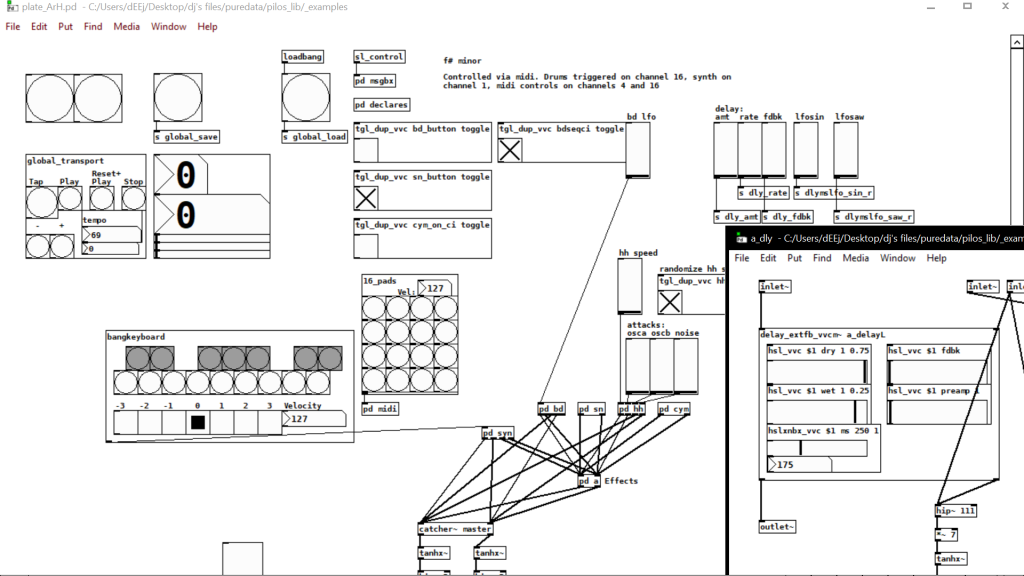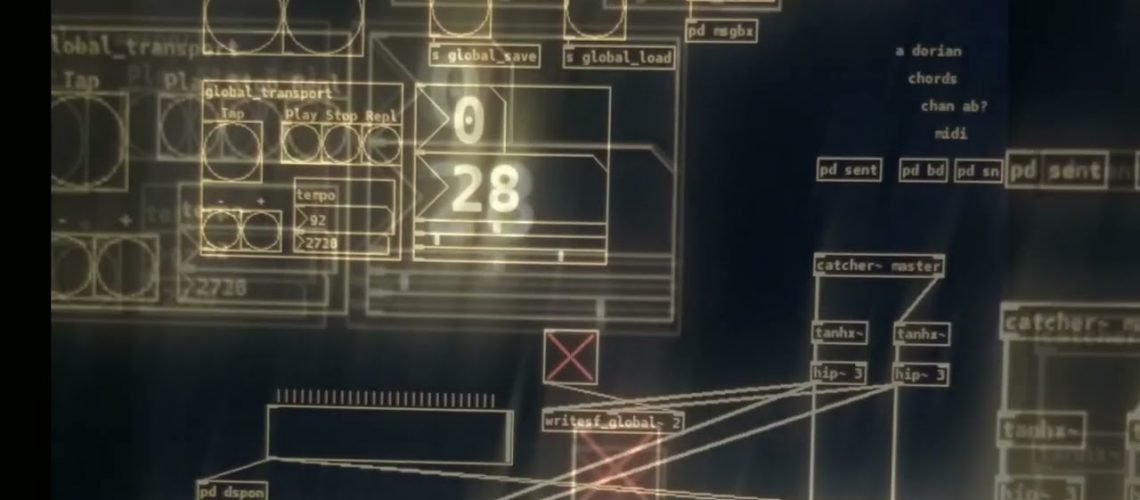The modular sound environment Pd (Pure data) is wonderful. Pd is free. Pd runs everywhere. Pd is … frequently lacking some of the stuff you’d ideally want out of the box. Enter Piloslib, totally free and just released.
Oh yeah, and – TURN UP YOUR VOLUME, folks. (Sorry, neighbors!) Just looking at the pics, sound off, you see something nerdy involving a computer. Sound on and you hear his DAMN AWESOME DISTORTION stuff, which since this is editable (and based on some simple approaches) is really helpful to understanding those algorithms.
Patchers have lately been releasing a bunch of amazing free tools lately that transform this open-source tool – and I’ll be honest, I’m a bit behind in covering them, but a lot has been happening on the scene. Derek Estrada’s Piloslib is a ground-breaking set of tools, and best of all, it runs entirely in vanilla – that’s the standard version maintained by creator Miller Puckette, which also runs embedded as libpd in game engines and on platforms like iOS and Android. (Derek even avoided using the expr~ object, which has a separate license.)
There’s just a ton in this package to make it easier to patch. Here’s an overview:

Rhythm and clock. You get a global clock and various rhythm generation helpers.
Preset management. Perhaps Pd’s single biggest pain point, preset management gets a proper save/load system here.
Per-voice modulation. Yeah, this was also confusing and complex, especially for beginners. (This is a more sophisticated solution than my own signature “give up and just build a monosynth” approach.)
And then there are the synths and effects, starting with simple subtractive synths with varying numbers of oscillators but support for Derek’s modulation system, drum synths, audio effects including non-linear compression for distortion, saturation, and tape modeling, multi-band EQ, filters of all types including formant filters, lots of delays, a stutter/beat repeat, and it’s always handy to have a freeverb-based reverb.
I also like these “ideas behind the library”:
Readable, encapsulated code with intuitive interfacing and ease of use in mind
Simple code, commenting, and intro tutorial instead of help files
Portability through naming conventions and no externals
Words to live by, those.
Check it out:
https://www.akunull.com/piloslib/
And here’s a full-length intro to the library. Dig the ultra-minimalist window manager here and in the screenshots. Pd black-and-white chic. Goth computing.
Android users, check out Derek’s Dragon Drum Machine, built with libpd.
Is this someone who plays with distortion? Yes. Yes, it is. Featuring this library:




